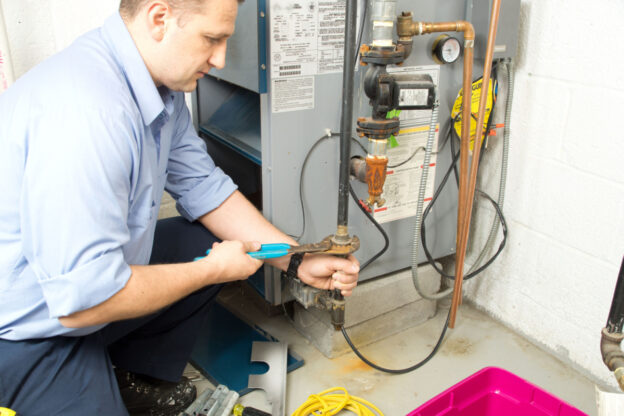Gas and electric furnaces are two of the most popular heating options, each with its own set of advantages and considerations. At Care Temp, your trusted heating and cooling services provider in Ocean County, NJ, we understand that choosing the right furnace for your home is a significant decision. Let’s explore the differences between gas and electric furnaces, helping you make an informed decision for your comfort needs.
Gas Furnaces: The Warmth of Efficiency
Efficiency and Cost-Effectiveness
Gas furnaces operate by burning natural gas to generate heat. One of the key advantages of gas furnaces is their high efficiency. They can quickly and effectively heat a space, making them ideal for cold winters. Additionally, natural gas tends to be more cost-effective than electricity, potentially lowering your heating bills.
Performance in Cold Climates
Gas furnaces excel in extremely cold climates. They can produce warmer air compared to electric furnaces, ensuring your home stays comfortably heated even in the chilliest winter months.
Installation and Maintenance
While gas furnaces may have a higher initial installation cost, they are generally more affordable to operate over time. Regular maintenance is essential to ensure long-term safety and efficiency, and professional technicians can easily handle routine check-ups.
Electric Furnaces: Clean and Convenient
Ease of Installation
Electric furnaces are known for their simplicity and ease of installation. They don’t require a gas line, making them a convenient option for homes without access to natural gas. This also eliminates the need for a chimney, reducing installation costs.
Lower Initial Cost
Electric furnaces typically have a lower upfront cost compared to gas furnaces. If you’re working within a budget, an electric furnace may be a more economical choice.
Efficiency in Moderate Climates
While electric furnaces may not provide the same level of heat output as gas furnaces, they can still efficiently warm homes, especially in moderate climates. They are often favored in regions where winters are less severe.
Choosing the Right System: Factors to Consider
Energy Efficiency
Gas furnaces generally have a higher Annual Fuel Utilization Efficiency (AFUE) rating compared to electric furnaces. AFUE represents the percentage of energy converted into usable heat, so a higher rating indicates better efficiency.
Installation Costs
Consider your budget for upfront costs and installation. While gas furnaces might have a higher initial investment, the long-term operational savings could balance the scales.
Environmental Impact
Electric furnaces are often considered more environmentally friendly since they don’t produce combustion byproducts. If reducing your carbon footprint is a priority, an electric furnace might be preferable.
Deciding Between Gas and Electric Furnaces
Choosing between a gas and electric furnace ultimately depends on your specific needs, budget, and geographic location. At Care Temp, our team of experienced professionals can guide you through the decision-making process. We take pride in helping homeowners in Ocean County, NJ, and the surrounding areas find the perfect heating solution for their unique requirements.
Contact Us for Personalized HVAC Services
Whether you’re leaning towards the efficiency of a gas furnace or the simplicity of an electric one, Care Temp is here to assist you. Contact us for personalized consultation, installation, repair, conversions, and maintenance services. Your comfort is our priority, and we’re committed to ensuring you have a reliable and efficient heating system that suits your home and lifestyle. Stay warm with Care Temp!




